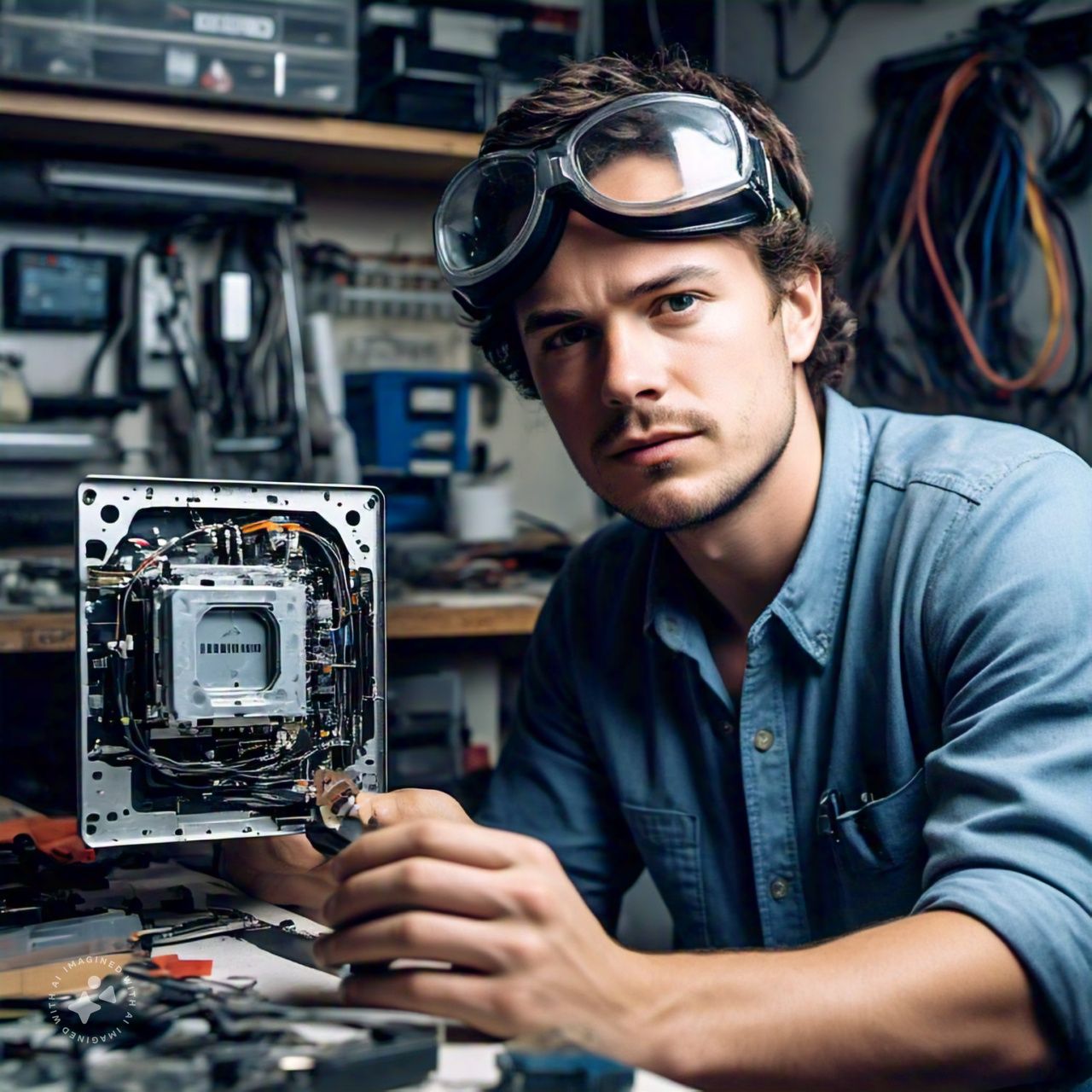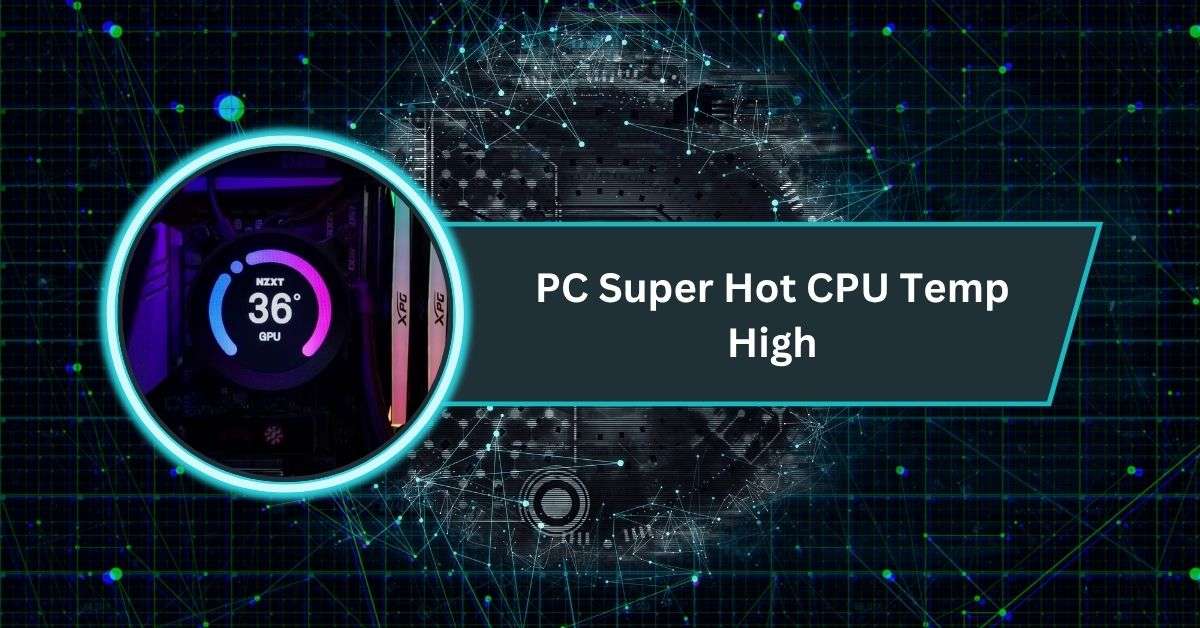Rocket League is one of the most popular esports titles in the world, known for its unique mix of soccer and high-speed cars.
Rocket League is primarily a CPU-intensive game, relying more on the processor for physics and logic. However, a capable GPU still enhances graphics, making a balanced CPU-GPU setup ideal for smooth, high-FPS competitive gameplay.
In this article, we’ll uncover whether Rocket League depends more on CPU or GPU performance.
CPU vs GPU in Gaming – A Beginner’s Explanation
To understand Rocket League’s performance needs, it helps to know the basic difference between CPU and GPU in gaming.
The CPU (Central Processing Unit) acts like the brain of your computer. It manages game logic, physics, and AI, making sure everything runs smoothly.
The GPU (Graphics Processing Unit) is like the artist, responsible for rendering visuals, textures, lighting, and all the effects you see on screen. In short, the CPU makes the rules of the game, while the GPU paints the picture.
Rocket League’s Game Engine and System Requirements

Rocket League runs on Unreal Engine 3, which is lighter compared to modern game engines but still needs balanced hardware. Here are the official requirements:
| Requirement Type | CPU | GPU | RAM |
| Minimum | 2.5 GHz Dual-Core | NVIDIA GTX 260 / ATI 4850 | 4GB |
| Recommended | 3.0+ GHz Quad-Core | NVIDIA GTX 660 / ATI 7950 | 8GB |
These requirements show that the GPU becomes more important once you aim for better visuals and higher frame rates, though the CPU still ensures smooth background processing.
Is Rocket League CPU or GPU Intensive?
So, is Rocket League a CPU or GPU game? The straightforward answer is that Rocket League is more GPU intensive overall.
The GPU handles most of the heavy lifting for rendering fast-paced action at high refresh rates. Still, if your CPU is weak, you can experience stutters, frame drops, or input delays, especially in crowded online matches.
This means that while GPU upgrades help the most, you should not ignore your CPU if you want competitive performance.
How Rocket League Uses the CPU
Rocket League’s CPU usage comes from handling the logic behind cars, ball physics, and opponent AI.
The CPU also processes online match data, which is essential for smooth multiplayer gameplay.
At higher frame rates like 120Hz or 240Hz, the CPU works harder to keep up, making it an important factor for competitive players.
How Rocket League Uses the GPU
The GPU in Rocket League is responsible for delivering crisp visuals and smooth rendering. From detailed car models to arena textures and lighting effects, your GPU ensures the game looks good while maintaining high frames per second.
Players with powerful GPUs can enjoy 144Hz or 240Hz monitors without issues, while weaker GPUs may struggle beyond 60 FPS.
Benchmarks: CPU vs GPU Impact on Rocket League Performance

Performance benchmarks clearly show how both CPU and GPU affect Rocket League. For example:
- Intel i3 with GTX 1050: Around 60 FPS at medium settings.
- Intel i5 with RTX 3060: 144+ FPS at high settings.
- Intel i7/i9 or Ryzen 7 with RTX 4070: 240+ FPS at ultra settings.
| Setup | Average FPS | Settings |
| i3 + GTX 1050 | ~60 | Medium |
| i5 + RTX 3060 | ~144 | High |
| i7 + RTX 4070 | ~240 | Ultra |
This shows the GPU has a bigger impact at higher settings, but the CPU still matters for ultra-high frame rates.
Best CPUs for Rocket League (2025)
Rocket League kaafi CPU pe depend karta hai, especially jab aap higher frame rates pe khelte ho. Acha processor smooth gameplay aur fast response ke liye zaroori hai.
- Budget: Intel Core i3-12100F ya AMD Ryzen 3 4100
Ye entry-level CPUs 60 FPS pe 1080p gameplay ke liye best hain. Agar aap casual gamer ho toh ye easily Rocket League handle kar lenge. - Mid-range: Intel Core i5-13400F ya AMD Ryzen 5 5600
144 Hz monitor ke liye ye CPUs perfect balance dete hain. Extra cores aur higher speed se competitive matches mein lag ya stutter nahi hota. - High-end: Intel Core i7-13700K ya AMD Ryzen 7 7800X3D
Pro players ya esports gamers ke liye ye CPUs ideal hain. Ye 240 Hz tak ke frame rates smoothly chala lete hain aur future-proof bhi hain.
Best GPUs for Rocket League (2025)
Rocket League GPU pe bhi rely karta hai, especially graphics aur smooth visuals ke liye. Sahi GPU frame rates stable rakhta hai aur higher refresh rate monitor ka full use karne deta hai.
- Budget: NVIDIA GTX 1650 Super ya AMD Radeon RX 6500 XT
Ye cards 1080p pe 60 FPS easily nikalte hain. Agar aapko sirf casual smooth gameplay chahiye toh ye best budget option hai. - Mid-range: NVIDIA RTX 3060 Ti ya AMD Radeon RX 6700 XT
Competitive players ke liye jo 144 Hz pe khelte hain, ye GPUs ideal hain. Ye high settings pe bhi stable FPS dete hain. - High-end: NVIDIA RTX 4070 Ti ya AMD Radeon RX 7900 XT
Hardcore esports aur pro players ke liye ye GPUs best hain. Ye 240 Hz monitors ke saath smooth aur crystal-clear gameplay provide karte hain.
Optimization Tips for Better FPS
To get the best FPS in Rocket League, you can:
- Lower resolution or graphics settings like shadows and effects.
- Turn off V-Sync and limit background applications.
- Update GPU drivers regularly.
- Use performance monitoring tools to identify CPU/GPU bottlenecks.
Common Bottleneck Scenarios

- Strong GPU + Weak CPU: GPU waits on CPU, causing stutters.
- Strong CPU + Weak GPU: GPU struggles to keep up, leading to low FPS.
- Balanced System: Both CPU and GPU share the load for smooth gameplay.
Tools like MSI Afterburner can help identify which component is limiting your performance.
Console vs PC Performance
On consoles like PlayStation and Xbox, Rocket League is optimized to run consistently at 60 FPS or higher without user adjustments.
On PC, however, players can push performance much further with high-end GPUs and CPUs, achieving 144Hz or even 240Hz gameplay.
Is Fortnite CPU or GPU intensive
Fortnite uses both the CPU and GPU, but it is more GPU intensive. The GPU handles graphics, textures, and smooth frame rates, while the CPU controls game logic. A balanced setup ensures smoother gameplay, especially on higher refresh rate monitors.
Is Fortnite a CPU based game
Fortnite is not mainly a CPU-based game. The CPU helps with physics, building actions, and player movements, but the GPU does most of the heavy lifting for visuals. Stronger GPUs generally give better FPS and smoother overall performance.
Is League of Legends more CPU or GPU intensive?
League of Legends is more CPU intensive than GPU intensive. The game’s graphics are not very demanding, but the CPU handles game logic, player interactions, and smooth performance. A strong processor ensures stable FPS, while even a modest GPU can handle visuals well.
What are the system requirements for Rocket League?
Rocket League needs a 2.5 GHz dual-core processor and a basic GPU like the NVIDIA GTX 760 to run.
For smoother performance, a 3.0+ GHz quad-core CPU and a stronger GPU are recommended. At least 8GB RAM is also required for consistent gameplay.
FAQs
1. What does it mean for a game to be CPU or GPU intensive?
It means the game mainly depends on either the CPU for calculations or GPU for graphics, deciding which component impacts smooth performance the most.
2. Is Rocket League more CPU intensive?
Yes, Rocket League leans more on the CPU for physics, collisions, and game logic, especially at high frame rates, ensuring smooth and responsive gameplay.
3. Is Rocket League more GPU intensive?
Rocket League also needs a good GPU to render graphics, textures, and effects. A stronger GPU improves visuals and maintains higher FPS during competitive matches.
4. What are the recommended CPU and GPU requirements for Rocket League?
Rocket League recommends at least a 3.0+ GHz quad-core processor and a mid-range GPU like the NVIDIA GTX 1060 or better for smoother, stable gameplay.
5. How can I optimize my setup for Rocket League?
Update drivers, lower heavy graphics settings, disable background apps, and use performance mode. Balancing CPU and GPU resources helps boost FPS and smoother play.
6. How to tell if a game is using CPU or GPU?
You can monitor CPU and GPU usage with tools like MSI Afterburner. High CPU percentage shows CPU bottleneck, while high GPU usage means graphics dependency.
7. Do I need a GPU to play Rocket League?
Yes, a dedicated GPU is strongly recommended. While integrated graphics can run the game on low settings, a GPU ensures stable FPS and smoother visuals.
8. Is Rocket League a heavy game for PC?
No, Rocket League is not considered a heavy game. It runs well on modest hardware, but higher refresh rates need stronger CPU and GPU setups.
9. Is it better to run games on CPU or GPU?
Most modern games run better on the GPU, since it handles visuals. The CPU still matters, but GPUs usually provide bigger performance improvements in gaming.
10. Is 60 fps enough for League?
Yes, 60 FPS is smooth enough for casual play in League of Legends. However, competitive players usually prefer 120–144 FPS for faster, more responsive gameplay.
Conclusion
Rocket League may look like a simple car-soccer game, but its performance depends on both CPU and GPU. The CPU controls physics, logic, and responsiveness, while the GPU handles visuals and frame rates. For casual players, even budget hardware can run Rocket League smoothly. But if you aim for high refresh rates or competitive play, investing in a stronger CPU and GPU balance is key. Optimizing your setup ensures not just smooth gameplay but also a fair advantage in fast-paced matches.











